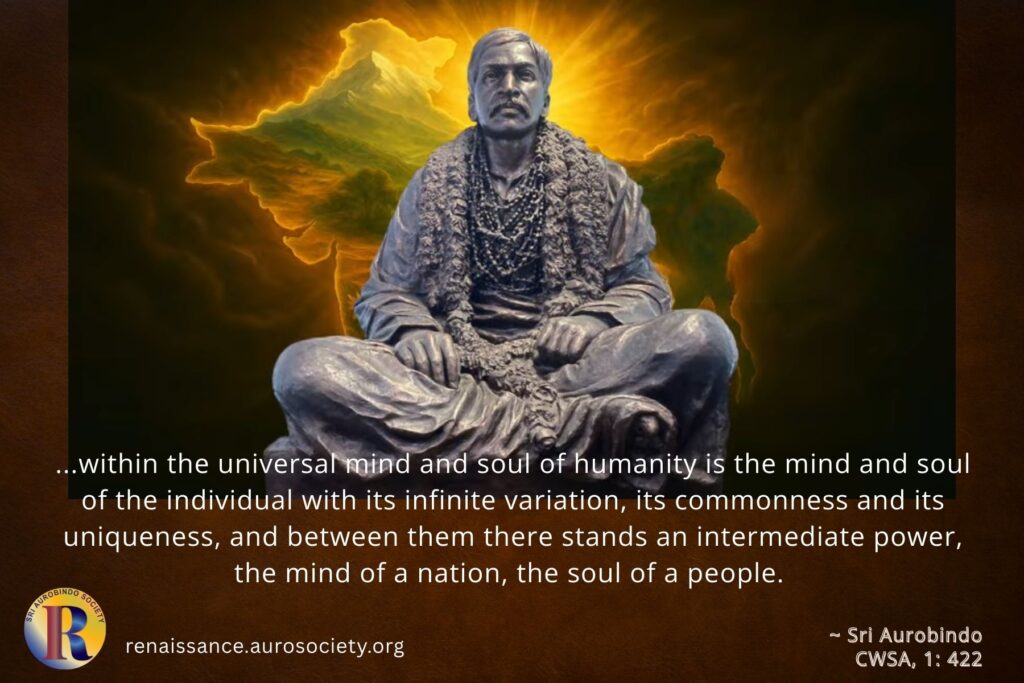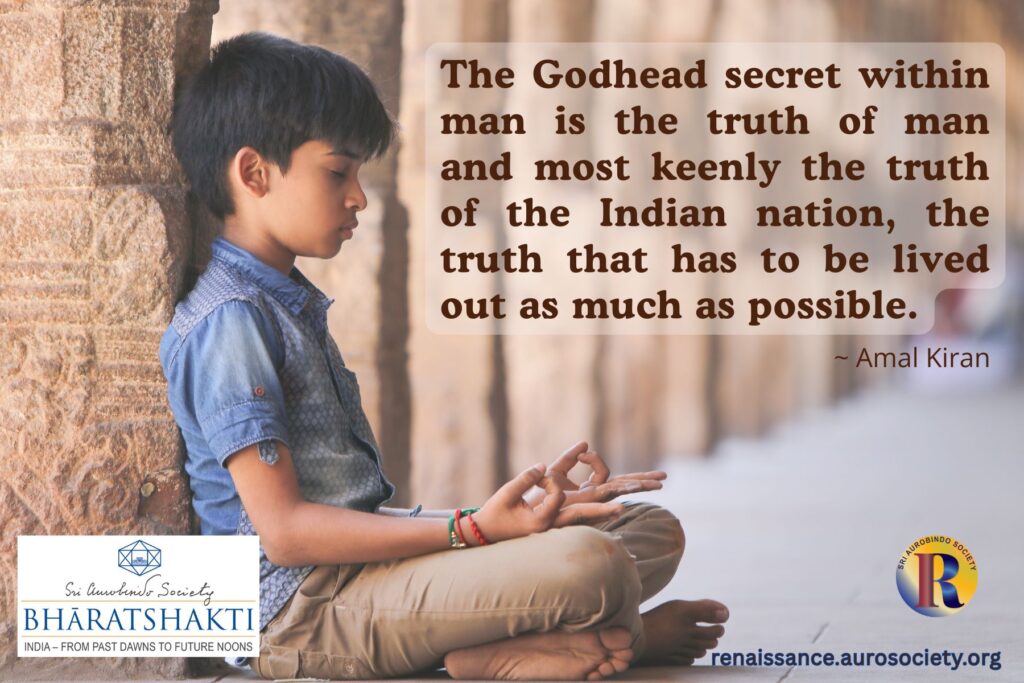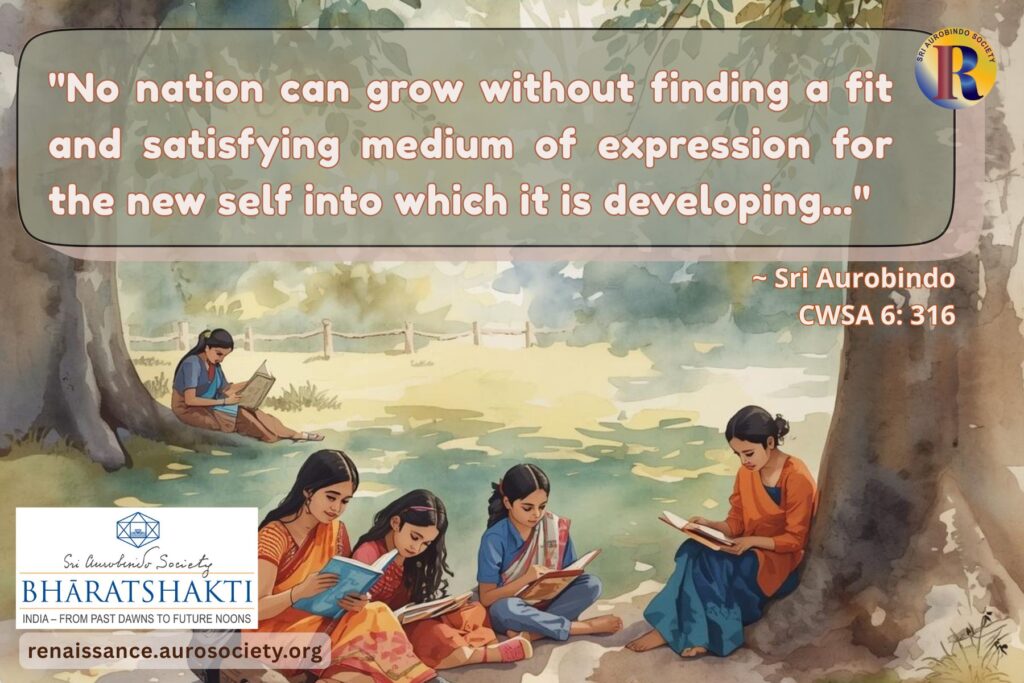Vol. III, Issue 6
Author: Sri Aurobindo
Editor’s note: We present here excerpts from a chapter from ‘The Ideal of Human Unity‘ in two parts. Sri Aurobindo speaks here of the inadequacy of an intellectual religion of humanity in bringing forth a true democracy based on the ideals of liberty, equality and fraternity.
Editors have made only a few formatting changes for the purpose of this digital presentation without altering anything in the original text.

PART 1
The religion of humanity was mind-born in the eighteenth century, the mānasa putra of the rationalist thinkers who brought it forward as a substitute for the formal spiritualism of ecclesiastical Christianity. . .
Humanitarianism has been its most prominent emotional result. Philanthropy, social service and other kindred activities have been its outward expression of good works. Democracy, socialism, pacificism are to a great extent its by-products or at least owe much of their vigour to its inner presence.
The fundamental idea is that mankind is the godhead to be worshipped and served by man and that the respect, the service, the progress of the human being and human life are the chief duty and the chief aim of the human spirit.
No other idol, neither the nation, the State, the family nor anything else ought to take its place; they are only worthy of respect so far as they are images of the human spirit and enshrine its presence and aid its self-manifestation. But where the cult of these idols seeks to usurp the place of the spirit and makes demands inconsistent with its service, they should be put aside.
No injunctions of old creeds, religious, political, social or cultural, are valid when they go against its claims. Science even, though it is one of the chief modern idols, must not be allowed to make claims contrary to its ethical temperament and aim, for science is only valuable in so far as it helps and serves by knowledge and progress the religion of humanity.
* * *
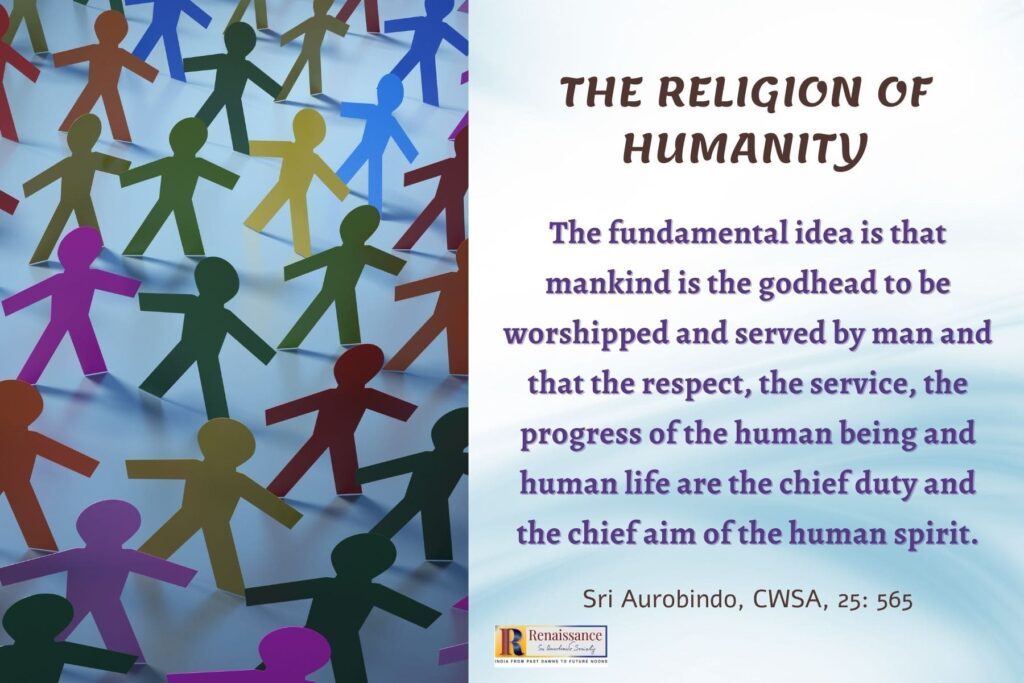
* * *
War, capital punishment, the taking of human life, cruelty of all kinds whether committed by the individual, the State or society, not only physical cruelty, but moral cruelty, the degradation of any human being or any class of human beings under whatever specious plea or in whatever interest, the oppression and exploitation of man by man, of class by class, of nation by nation and all those habits of life and institutions of society of a similar kind which religion and ethics formerly tolerated or even favoured in practice, whatever they might do in their ideal rule or creed, are crimes against the religion of humanity, abominable to its ethical mind, forbidden by its primary tenets, to be fought against always, in no degree to be tolerated.
Man must be sacred to man
Man must be sacred to man regardless of all distinctions of race, creed, colour, nationality, status, political or social advancement.
The body of man is to be respected, made immune from violence and outrage, fortified by science against disease and preventable death. The life of man is to be held sacred, preserved, strengthened, ennobled, uplifted. The heart of man is to be held sacred also, given scope, protected from violation, from suppression, from mechanisation, freed from belittling influences.
The mind of man is to be released from all bonds, allowed freedom and range and opportunity, given all its means of self-training and self-development and organised in the play of its powers for the service of humanity. And all this too is not to be held as an abstract or pious sentiment, but given full and practical recognition in the persons of men and nations and mankind. This, speaking largely, is the idea and spirit of the intellectual religion of humanity.
One has only to compare human life and thought and feeling a century or two ago with human life, thought and feeling in the pre-war period [pre WW I] to see how great an influence this religion of humanity has exercised and how fruitful a work it has done.
* * *
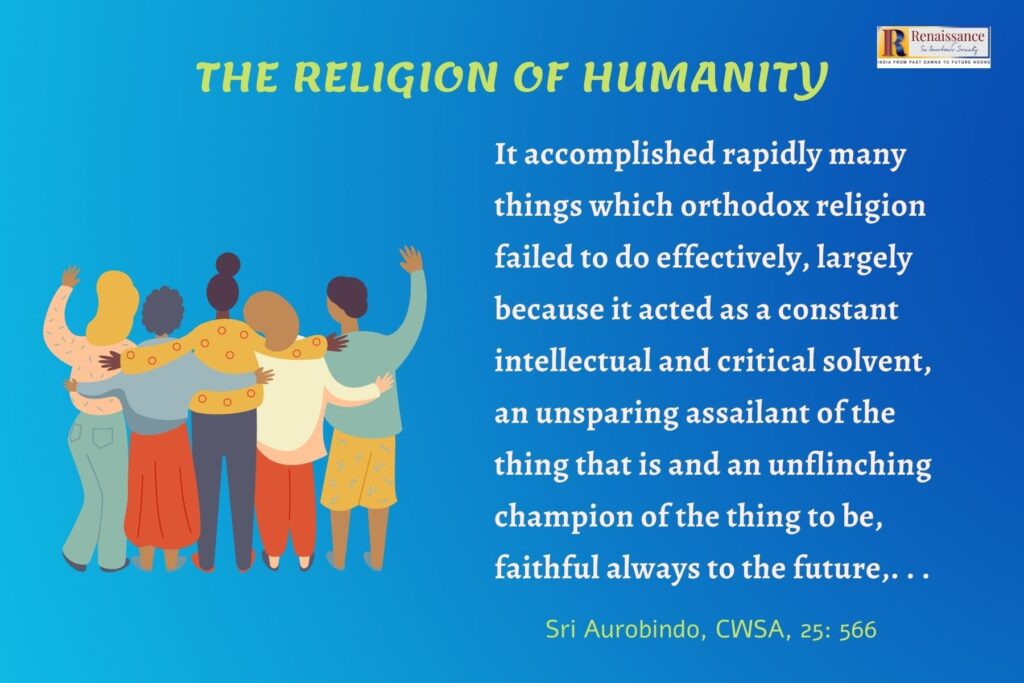
* * *
It accomplished rapidly many things which orthodox religion failed to do effectively, largely because it acted as a constant intellectual and critical solvent, an unsparing assailant of the thing that is and an unflinching champion of the thing to be, faithful always to the future, while orthodox religion allied itself with the powers of the present, even of the past, bound itself by its pact with them and could act only at best as a moderating but not as a reforming force.
Moreover, this religion has faith in humanity and its earthly future and can therefore aid its earthly progress, while the orthodox religions looked with eyes of pious sorrow and gloom on the earthly life of man and were very ready to bid him bear peacefully and contentedly, even to welcome its crudities, cruelties, oppressions, tribulations as a means for learning to appreciate and for earning the better life which will be given us hereafter.
Humanising Work of an Intellectual Faith
Faith, even an intellectual faith, must always be a worker of miracles, and this religion of humanity, even without taking bodily shape or a compelling form or a visible means of self-effectuation, was yet able to effect comparatively much of what it set out to do.
It to some degree humanised society, humanised law and punishment, humanised the outlook of man on man, abolished legalised torture and the cruder forms of slavery, raised those who were depressed and fallen, gave large hopes to humanity, stimulated philanthropy and charity and the service of mankind, encouraged everywhere the desire of freedom, put a curb on oppression and greatly minimised its more brutal expressions.
It had almost succeeded in humanising war and would perhaps have succeeded entirely but for the contrary trend of modern Science. It made it possible for man to conceive of a world free from war as imaginable even without waiting for the Christian millennium. At any rate, this much change came about that, while peace was formerly a rare interlude of constant war, war became an interlude, if a much too frequent interlude of peace, though as yet only of an armed peace. That may not be a great step, but still it was a step forward.
It gave new conceptions of the dignity of the human being and opened new ideas and new vistas of his education, self-development and potentiality.
* * *
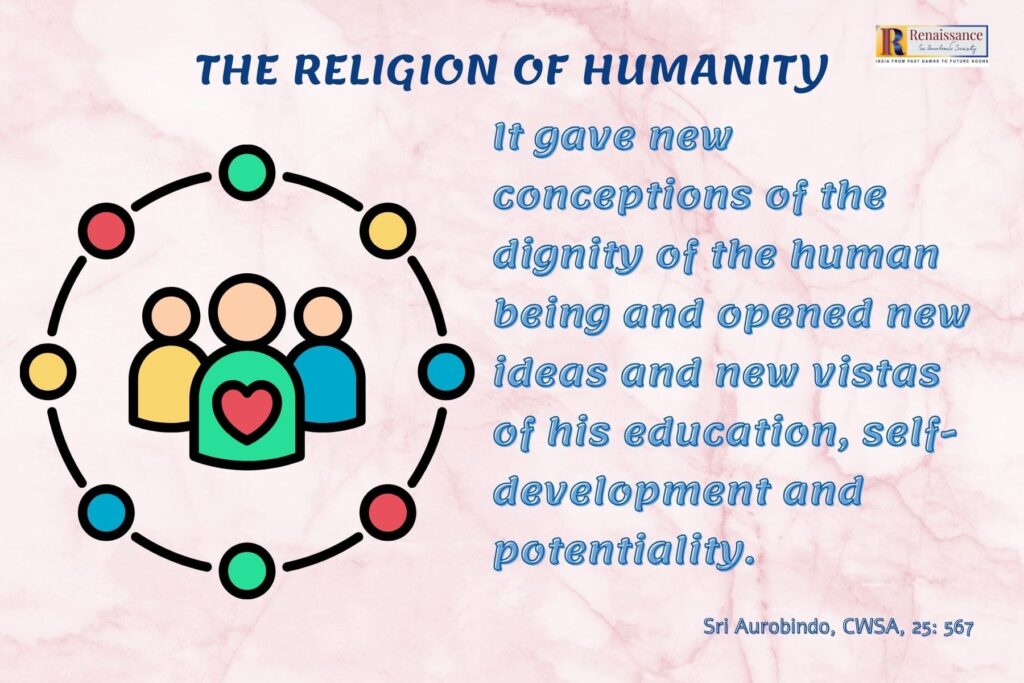
* * *
It spread enlightenment; it made man feel more his responsibility for the progress and happiness of the race; it raised the average self-respect and capacity of mankind; it gave hope to the serf, self-assertion to the down-trodden and made the labourer in his manhood the potential equal of the rich and powerful.
True, if we compare what is with what should be, the actual achievement with the ideal, all this will seem only a scanty work of preparation. But it was a remarkable record for a century and a half or a little more and for an unembodied spirit which had to work through what instruments it could find and had as yet no form, habitation or visible engine of its own concentrated workings. . .
~ Sri Aurobindo, CWSA, Vol. 25, pp. 564-570
CONTINUED IN PART 2
~ Design: Beloo Mehra

